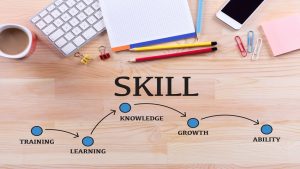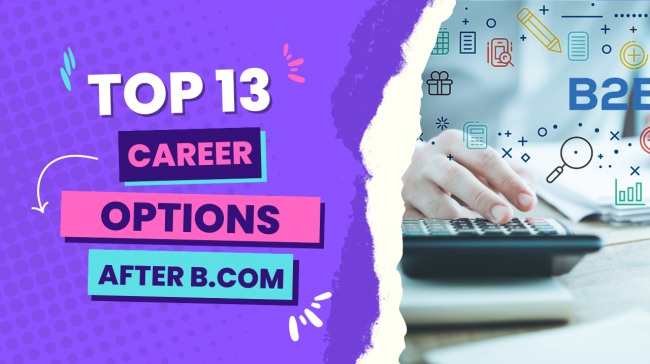Hi All, welcome to Brain Checker’s blog, in today’s article we will be talking about Skill Education : Why a skill-based education is becoming more important. I am Keya Raje, a Counseling Psychologist and Co-Founder, Brain Checker, I have been working as a Career Counselor and Mental Health Professional for last 10+Years. In this article, we will be talking about Skill Education : Why a skill-based education is becoming more important. So let’s begin.
For many people today, a career for life is no longer an option. Most people will hold jobs with a variety of employers and move across different employment sectors throughout their working life.
We therefore all need to be flexible in our working patterns and be prepared to change jobs and/or sectors if we believe there are better opportunities elsewhere.
In India, Skill Education is considered to be a vocational skill that is obtained through short-term training or courses not part of the formal education sector and which provides employment in informal sectors. Such skills are also a part of the government’s Pradhan Mantri Kaushal Vikas Yojna (PMKVY) scheme, which aims to promote recognition and standardization. However, expertise needs to be developed in the formal learning system as well.
Everyone has strengths and skills. If you want a job that’s a good fit for you, start by looking at your skills. Also, employers look for people with certain types of skills when they hire. Skills are things that you can do or abilities that you have.
Job Skills courses are a medium through which you can learn any skill of your interest ranging from computer skills to management, sales, accounting, etc. These certification courses will help you boost up your resume and ultimately your career path.

Many job skills are:
- Learnable: You can get education or training that will teach you skills or improve the ones you already have. Sometimes you can learn on the job.
- Transferable: Many things you do in one job also can be used at other jobs.
It’s important to think about the skills you have at different times in your career. Pay attention to when you learn a new skill. And be aware of what strengths and skills you might be able to use in a different job.
There are several types of job skills:
- Basic skills, like listening, speaking, reading, and writing, are necessary for all workers.
- People skills, or soft skills, like negotiating, persuading, and coordinating with coworkers, help people to work well with others.
- Management skills, like keeping track of time and money, assist people to keep things organized.
- Technical skills, like operating or repairing computers, and installing and maintaining other machinery, help people to work with equipment.
Article Contents
Get Started:
Think about your strengths, skills, and all the things you know how to do. Now, think about a time when you did something you were proud of.
- Write down which skills you used to do that.
- Use this “Develop Your Work Skills” page to think about the skills you have and the skills you want to develop.
Explore different career clusters, career paths, and learn about the pay and education needed for different careers.
Career paths help you learn about careers that fit you.
- Agriculture & Outdoors
- Business
- Construction
- Health
- Hospitality
- Human Services
- Manufacturing
- Public Safety
The current pandemic has advanced the use of local products and has helped people recognize the importance of a skill-driven society. Being a young nation with 75% of the population of the working-age, employment becomes a major concern. With the help of schemes such as Recognition of Prior Learning (RPL), students can receive both security and benefit, as it aids in an equivalent acknowledgment of both informal and formal learning. Students are the human capital of the country and it is essential to empower them for the development of the economy. Some of the benefits of skill-based education include:
Flexibility: Skill-based education places the ownership of learning in the hands of students and helps them restrict the big gap of understanding. The assessment demonstrates their competency rather than grades and the education process is a great boon for drop-outs, as they can easily move ahead without a gap. The whole structure depends on the individual where students control their learning with the help of assessments and hands-on projects.
- Acquiring experience: In skill-based learning, students are groomed to become successful leaders in their chosen field. To facilitate this process, it is paramount for students to think beyond grades and acquire real-life skills. These tangible experiences are often overlooked in the traditional form of education.
- Purpose-driven: Skill-based education is definitely more effective and purpose-driven, which helps students receive a clear objective along with a vibrant culture. It is a perfect mixture of opinions, values, and routines to form a solid foundation. It promotes and develops the art of learning and development hence empowering the students to become successful in their chosen field.
With the various skilled workforce roles, students can be a part of the process of helping break down the cycle of unemployment.
For more information on this and other research from Brain Checker, please visit our web site (https://www.brainchecker.in) or call us on our National Helpline at +91-9970057774 or fill out the inquiry form https://rb.gy/6b1zpp form and our team will reach out to you shortly. If you liked our article please subscribe to our YouTube channel https://rb.gy/b5g4er for more such content. Thank you for reading.




